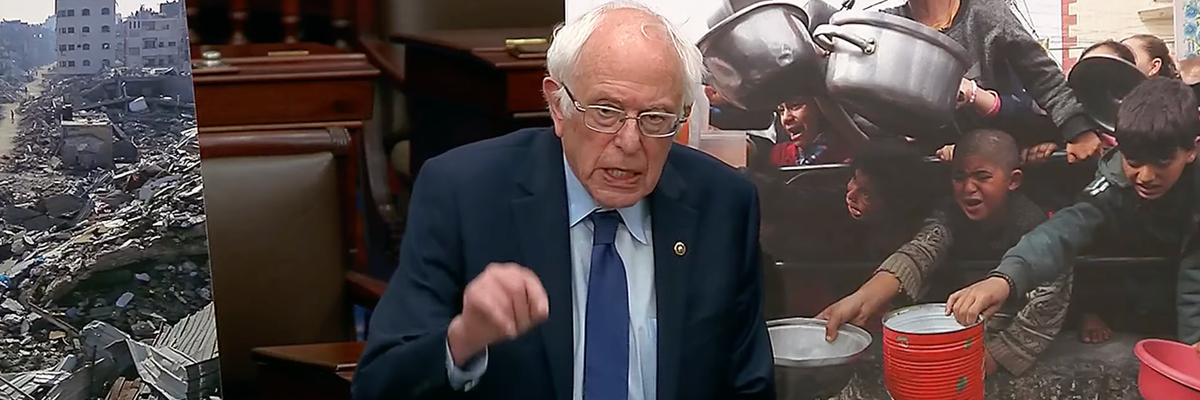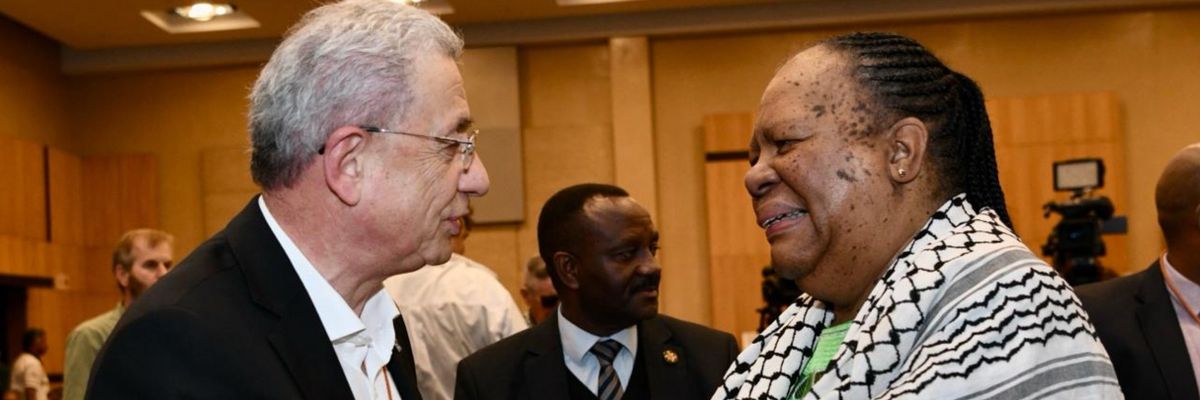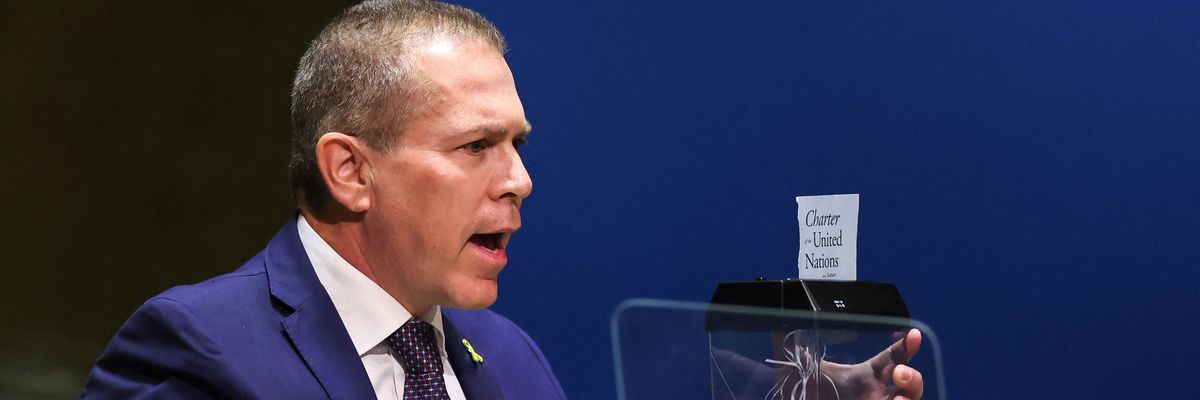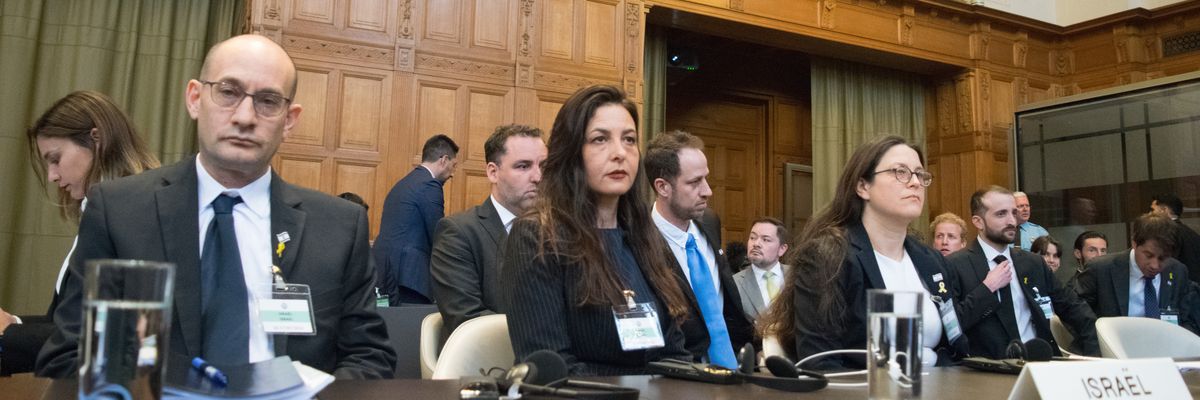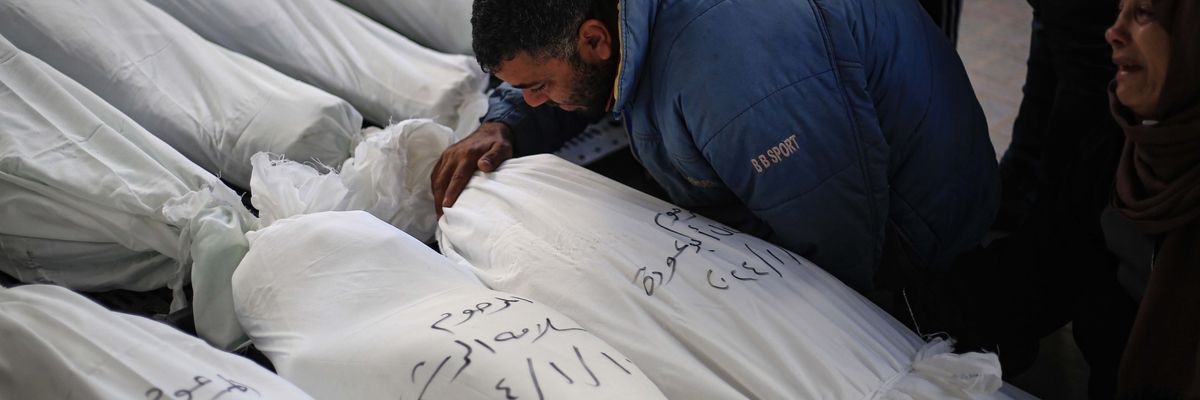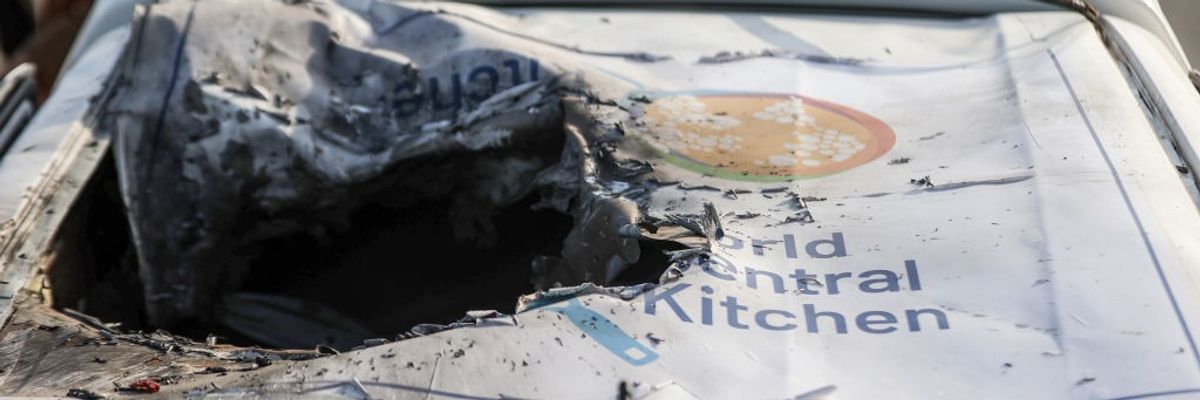Raju J Das
18 May, 2024

Abstract:
Climate change is producing health challenges. It has therefore contributed to an enhanced scholarly attention to public health. This article presents some basic ideas about how capitalism, workers’ health and climate change are inter-connected. It explains: a) the impacts of the production of capitalist wealth on workers’ health, and b) how these impacts are mediated by climate change, which is also a product of capitalism. Building on Friedrich Engels, the article introduces the concept of “eco-social murder” to explore the ways in which the ecological character of capitalism is killing and harming workers.
Capitalism produces a lot of wealth, including the development of new technologies. Karl Marx admired capitalism for this in the Communist Manifesto and elsewhere.1 But it is also a society where workers’ health is severely compromised relative to the opportunities available to escape from avoidable illnesses and deaths. There have been significant improvements in health conditions, as demonstrated by a massive increase in longevity, thanks to the capitalist development of science and technology aided by the state and thanks to workers’ struggle for better health. Yet, capitalism produces conditions for illnesses and deaths too. In Capital 1, Marx (1887) says: “the capitalist mode of production…has seized the vital power of the people by the very root” (ibid.: 181, italics added).2 In our time, the scope of this idea from Marx, along with Friedrich Engels’ idea of social murder, can be broadened to include the impacts of climate change.
Engels (1845), Marx’s co-writer, independently wrote about workers’ health.3 He has deservingly received much attention for his work on workers’ health and, especially, for his concept of social murder. This concept refers to avoidable deaths of workers caused by the operation of the capitalist economic system and the capitalist state policy. Social murder is an “early and an unnatural death” caused by the people’s deprivation of necessaries of life. It is “one which is quite as much a death by violence as that by the sword or bullet”. Social murder is social and a murder because it is the capitalist society that forces people “through the strong arm of the law, to remain in such conditions until that death ensues” and society knows that people will suffer and die and yet does nothing to stop this. The capitalist society commits this murder “daily and hourly” by placing common people “under conditions in which they can neither retain health nor live long” and it “undermines the vital force of …workers gradually, little by little, and so hurries them to the grave before their time” (Engels, 1845:84).
The idea of social murder has relevance in the context of climate change, which contributes to workers’ illnesses often causing death. So what Engels calls social murder should be called eco-social murder.
The health impacts of climate change on the population have been the subject of a large amount of literature.4 However, the impacts of climate change on workers have not received the serious attention through the theoretically informed empirical work that it deserves. This is a significant intellectual neglect, in part because workers’ health challenges caused by global warming are not exactly those of the general population. The workplace experience of people is an important determinant of health.
In this article, by building on Marx’s Capital 1, I discuss the idea that capitalism has adverse impacts on workers’ health.5 I also show that these impacts are mediated by climate change which is also a product of capitalism’s private property and profit maximization principles. So health challenges of workers — including social murder, or eco-social murder — in capitalism are caused by “direct” impacts of the capitalist labour market and workplace dynamics, and by “indirect” impacts of capitalism (transformation of the environment, including climate change). This approach constitutes a class dimensions of health approach (Das, 2023; 2024), which, in the current age of climate change, must be broadened to include a class-ecological dimensions of health approach.
Impacts of capitalism on workers’ health in an age of climate change
Value of labour power, employment precarity and low income
Labouring individuals, as part of nature, have “natural wants, such as food, clothing, fuel, and housing” which “vary according to the climatic and other physical conditions of [their] country” (Marx, 1887: 121). These natural wants also vary over time: for example, with climate change resulting in extremely high or extremely cold temperatures, people need energy for cooling or heating, respectively. So, people’s energy needs must be met for them to return to work daily with a healthy body and mind. “If the owner of labour-power works to-day, to-morrow [they] must again be able to repeat the same process in the same conditions as regards health and strength” (ibid.: 121). But in reality, the value of labour power does not include all the social-ecological needs, or if it does, wages fall below the value of labour power. The situation where wages fall below the value of labour power is called “super-exploitation”.6 Super-exploitation is bound to make people fall ill because they find it difficult to access the financial resources needed for good health (e.g. medicine, hospital facility and doctor’s advice) which are available only/mainly as commodities.
By producing extreme weather events, heat waves, floods, etc climate change is increasing the cost of housing, food, healthcare, etc. The nominal wages conventionally paid do not cover the increased costs of reproduction (for example, cooling devices at home, costs of illness caused by climate change which has become a grave problem in the last 50 years or so). This situation impacts workers’ ability to lead a healthy life.
One’s annual income determines one’s ability to obtain the financial resources needed for good health. Annual income is normally a function of a) wages per hour and b) employment (hours worked in a year). There is no guarantee that one’s wage covers all the necessary costs of reproduction as we have seen. Nor is employment guaranteed. Whether or not one gets hired depends on capital’s need for a worker and on capital’s economic ability to hire. Climate change adversely impacts employment opportunities.7 By weakening profitability in sectors affected by climate change, the latter is reducing employment-generating capacity of employers. Disruption of supply chains caused by climate disasters can make many businesses unviable, so they may not be able to hire people. When individuals experience illnesses (for example heat-related illness or infectious diseases) due to climate change, they are less likely to be hired and be able to work. Adverse impacts of extreme weather events are weakening economic viability of small-scale producers (peasants, fishermen/fisherwomen) as well who are joining the urban reserve army and precarious labour market, a process that puts downward pressure on wages.
All in all, when people’s wages are inadequate and/or when they are un- or under-employed, they are bound to be in poverty. Poverty is an important determinant of health. And poverty — which is being exacerbated by consequences of climate change — is the inevitable effect of capitalist production (Das and Mishra, 2023).8
‘Absolute and relative’ overwork
For some workers, unemployment and under-employment is a curse, with its health implications. For others, having to work excessively long hours is a problem and has health implications too.
It is not the normal maintenance of the labour-power which is to determine the limits of the working day; it is the greatest possible daily expenditure of labour-power, no matter how diseased, compulsory, and painful it may be, which is to determine the limits of the labourers’ period of repose. (Marx, 1887: 179)
Both tendencies — overwork and under-employment/unemployment — coexist in capitalism. Just as wages are expected to be enough to pay for the normal expenses, the length of the working day should be reasonable to ensure that the worker gets enough rest. In reality, workers are forced to work longer than their body-mind complex can normally tolerate. Long working days ruin workers’ physical and mental/spiritual health. By excessively extending the working day, capitalism subjects workers to “the premature exhaustion and death of this labour power itself” (Marx, 1887: 179; italics added). This problem — the problem of physical harm to the working bodies including exhaustion and workplace-caused mortality, etc — is compounded by the impacts of climate change on health, that is, by the fact that when workers working outdoor have to work long hours, they are exposed to excessive atmospheric heat and to an air that contains harmful gases that are released when fossil fuels are burnt. So they experience ill-health.
The impacts of climate change produced by capitalism on workers’ health proves a more general point: “Capital cares nothing for the length of life of labour-power” (Marx, 1887: 179; italics added), unless “under compulsion from society” (ibid.: 181), that is, government regulation, which is difficult in times of neoliberalism. When temperatures are very high during the working day, workers need more rest in part to cope with exhaustion and to avoid peak heat hours, and there is a need to reduce the length of the working day. Capitalism will not normally allow this, however.
When the working day is excessively prolonged, when the temperatures are high and when there are not enough rest breaks, wages — that is, the price of labour-power — may fall below its value for an interesting reason. Thus the law of equal exchange may be violated in the sense that the expenses that workers need to incur to deal with the extra wear and tear and exhaustion caused by excessive heat (or indeed excessively low temperatures without availability of heat) are not included in the normal price of labour power. This results in “The price of labour-power and the degree of its exploitation ceas[ing] to be commensurable quantities” (Marx, 1887: 371). And, precisely because of the violation of the law of equal exchange, the long-term interests of the capitalist class as a whole are threatened. This is because more value (a greater quantity of resources in their commodity form) needs to be commonly spent to reproduce a healthy working class — to replenish the used-up forces — to be made available for work. If workers are ill and die prematurely, there is an additional cost to capital as-a-whole, and yet capital does not prevent workers from experiencing the health effects of climate change. Why?
One reason, obviously, is that the longer the workers work, other things being constant, the more is the surplus value and therefore profit. If workers take a lot of rest for their body to cool down or to avoid heat exhaustion, capital suffers a loss. In pursuit of a value greater than the value of labour power, capitalists make workers work very long hours at the cost of their own health. But capital is indifferent towards workers’ health: “in its blind unrestrainable passion, its were-wolf hunger for surplus labour, capital oversteps … physical maximum bounds of the working day” (Marx, 1887: 179; italics added). Another reason is that driven by the competitive pressure to reduce the cost of production, every capitalist is forced to extract as much work as possible from their workers, even if they work under extremely adverse climatic conditions. This tendency, in many cases, is expressed in the form of excessive overwork which ruins workers’ health. So bad health due to excessive overwork — that is, overwork relative to the physical, including, climatic conditions of work — when temperatures are very high is to be explained at the level of capital as a whole and in terms of the competitive interests of individual capitalists.
Physical conditions in the despotic capitalist workplace
An important aspect of capitalist society is its “hidden abode of production” (Marx, 1887: 123): the workplace where surplus labour is produced and appropriated. The physical conditions of the workplace — or, “the material conditions under which factory labour is carried on” (ibid.: 1887: 286) — are often characterized by “unhealthiness and unpleasantness” (ibid.: 170). In some workplaces, “Every organ of sense is injured in an equal degree by artificial elevation of the temperature, by the dust laden atmosphere, [etc.]” (ibid.: 286). Consider how workers in textile industries work in factories without air-conditioning, and especially in summer times in tropical climates. Consider also how harmful the conditions of capitalist workplace are when the workplace is outdoors when temperatures are much above the body temperature of 37oC.
Workers engaged in strenuous outdoor activities are particularly vulnerable to heat stress as well as infectious diseases. In some cases, heat strokes can cause death (Yang et al, 2018).9 In the US, extreme heat is one of the three main causes of death and injury in the workplace, contributing to between 600 and 2000 deaths a year, along with 170,000 injuries (Baker, 2023).10 As well, adverse impacts of climate change on workers’ health cause low productivity and dent companies’ profit, which in turn may affect workers’ chances of employment.
The health impacts of extremely high temperatures are especially severe for construction workers. They often engage in physically demanding tasks outdoors, increasing their susceptibility to dehydration and heat stress (Acharya, et al, 2018).11 Adverse impacts of climate change on construction workers’ health cause low productivity as indicated by the fact that, for example, construction activities involving physical work take, on average, 36% longer to execute during extreme heat (Bleasby, 2023).12 Construction workers are indeed at an elevated risk of heat stress, due to the strenuous nature of the work, high temperature work condition, and a changing climate (Acharya, et al, op.cit.). Other outdoor workers — for example workers engaged in sanitation, parks and nature conservation, eco-tourism, refuse collection, fire-fighting, farming and mining, and infrastructural work (such as fixing damaged electricity lines) — suffer in similar ways.
The health impacts of climate change on workers can be especially serious in the urban landscape: indeed, health impacts are compounded — if not created — by rapid urbanization and consequent high population density, and climate-sensitive urban built environments where heat accumulates preventing atmospheric cooling leading to urban heat islands.
It is through the despotic control that during the working day capital seeks to fill all potential pores by making workers work every single minute. Capital “steals the time required for the consumption of fresh air and sunlight” (Marx, 1887:179). One could say that capital steals the time required for rest to cope with heat exhaustion. On the whole, in the workplace, most workers have little control over the conditions of their work. “Every kind of capitalist production ... has this in common, that it is not the workman that employs the instruments of labour, but the instruments of labour that employ the workman” (ibid.: p. 286).
This lack of control must have some impact on workers’ mental and physical health. Workers have no control over speed of work, rest hours, etc. in this time of global warming.
An interim summary
Marx’s discussion on the political economy of health centres on wage-labour and production of value. If a worker does not produce surplus value, they are not needed or hired by capital, so they are denied access to the required means of subsistence, including food and healthcare. Climate change, by causing massive destruction of capitalist wealth, is contributing to weaker economies and lowering the ability of capital to employ people. Even if people are hired, they may not receive adequate compensation, one that covers additional expenses that need to be met because of climate change. If one does not have adequate income from wage-work because of low wages and/or under- or unemployment, one does not have the money to meet basic needs such as health. Clearly, health is an important part of the value of labour power and of the process of the production of value. Therefore, health is an important part of Marx’s political economy and indeed of his class theory as such (Das, 2017, op. cit.).
And, health has an ecological dimension. Climate change impacts workers’ health in diverse ways. Among other things, as we have seen, it causes extremely high temperatures, including heat waves and urban heat islands, which lead to health challenges (e.g. heat exhaustion) for workers who work outdoors.13 This happens globally — in countries that are tropical and temperate, poorer and richer — although there are important differences.
Towards a research agenda
There is a limit to what can be said about the world at a theoretical level. Theoretical reflections must be supplemented by theoretically-informed empirical research. It is important to examine the health impacts of climate change in an urban context as well as in rural areas, where farm and mining workers work. It is useful to compare the impact of climate change on the health of outdoor workers in the less developed and more developed worlds. An international comparative perspective would allow one to examine if the level of economic development matters when it comes to health impacts of climate change and how they are sought to be mitigated.
There is a need to understand how the impacts of climate change on people’s health are not direct but mediated by specific economic-political processes. These are: companies’ need to maintain an average level of profit; state’s “duty” to maintain a conducive business environment by promoting labour productivity; and state protection of workers’ health prompted by workers’ own agency demanding the latter. It is important to examine in particular:What health issues do (outdoor) workers face due to high temperatures during the working day? How do they explain the health challenges their face?
What are the state policies (and employers’ voluntary actions) to mitigate the health impacts of high temperatures, and to what extent do they actually meet workers’ health needs?
How have workers’ climate awareness and class consciousness, as well as their action through unions or civil society associations, influenced state’s and employers’ responses to workers’ health challenges?
What constraints do the state and employers face in helping workers cope with the health consequences of climate change, and why? What limits are there to the improvements of workers’ health conditions in capitalism that are impacted by climate change, and why?
Research asking the types of questions suggested above will contribute to the understanding of the social and ecological dimensions of public health, from a global perspective. It will show how the character of the workplace itself and economic conditions of workers are an important social dimension of public health in the age of climate change.14 More specifically, such research will shed light on the ways in which the impact of the capitalist economy on workers’ health is mediated by climate change, which is also largely a product of the market economy. This research will shed light on the climate-sensitive nature of the capitalist workplace, not only as a site where profit is made but also one where workers experience health challenges. Such research will also support workers’ organizations by providing vital intellectual resources to fight for “a social-ecological wage” that is automatically adjusted to inflation, and that covers the need for a sustainable environment, including a cooler planet and other needs such as food, shelter and healthcare, as a part of their fight for a democratic society beyond the rule of capital that subordinates working people and nature.15
Raju J Das is Professor at the Faculty of Environmental and Urban Research, York University. https://rajudas.info.yorku.ca1
See Das (2022:218-219) on this point: Das, R. (2022). On the communist manifesto: ideas for the newly radicalizing public. World Review of Political Economy, 13(2), 209–244. https://www.jstor.org/stable/48687800
2
Marx K. 1887. Capital, vol. 1. Available at: https://www.marxists.org/archive/marx/works/download/pdf/Capital-Volume-I.pdf
3
Engels, F. (1845) The conditions of the English working class. Available at: https://www.marxists.org/archive/marx/works/download/pdf/condition-working-class-england.pdf
4
See the collection of articles in: Levy, B and Patz, J. (eds) 2015. Climate Change and Public Health. Oxford: Oxford University press.
5
In doing so, I draw on Das, R. J. (2023). Capital, Capitalism and Health. Critical Sociology, 49(3), 395-414. https://doi.org/10.1177/08969205221083503
6
See, Das, R.J. 2017. Marxist class theory for a skeptical world. Brill: Leiden/Boston (p. 269; 294; 302; 311; 347; 366; 386-88).
7
Newman, F. and Humphrys, E. 2020. Critical Sociology, Vol. 46(4-5) 557–572
8
Das, R. and Mishra, D., Eds. 2023. Global Poverty: Rethinking Causality. Leiden: Brill.
9
Yang Xia, Yuan Li, Dabo Guan, David Mendoza Tinoco, Jiangjiang Xia, Zhongwei Yan, Jun Yang, Qiyong Liu, Hong Huo, Assessment of the economic impacts of heat waves: A case study of Nanjing, China, Journal of Cleaner Production, Volume 171, pp. 811-819.
10
Baker, A. 2023. Extreme heat is endangering America’s workers – and its economy. Time. https://time.com/6299091/extreme-heat-us-workers-economy/.
11
Acharya P., Boggess, B., and Zhang K. Assessing Heat Stress and Health among Construction Workers in a Changing Climate: A Review. International Journal of Environmental Research on Public Health. 2018 Feb 1;15(2):247.
12
Bleasby, J. 2023. Climate and Construction: Extreme heat increases worker safety risk and reduces productivity https://canada.constructconnect.com/dcn/news/resource/2023/09/climate-and-construction-extreme-heat-increases-worker-safety-risk-and-reduces-productivity
13
Habibi, M, Ghahria, A., Karimi, M, Golbabaeif. 2016. The Past and Future Trends of Heat Stress Based On Wet Bulb Globe Temperature Index in Outdoor Environment of Tehran City, Iran. Iranian Journal of Public Health. 45(6):787-794.
14
Flynn, M. 2021. Global capitalism as a societal determinant of health: A conceptual framework. Social Science & Medicine.;268:113530. doi: 10.1016/j.socscimed.2020.113530.
15
For details on ecological social wage, see Das, R. J. 2018. “A Marxist Perspective on Sustainability: Brief Reflections on Ecological Sustainability and Social Inequality.” Links: International Journal of Socialist Renewal. https://links.org.au/marxist-perspective-sustainability-brief-reflections-ecological-sustainability-and-social Such a fight for a social-ecological wage must be connected to a fight for a social-ecologically remunerative price for peasants and other such small-scale producers who also experience health and other challenges because of climate change caused by capitalism, which means that there is a need for an alliance between workers and small-scale producers, especially in the South. On this topic, see: Das, R. J. 2023. ‘On the worker-peasant alliance in India (and other countries of the Global South)’. Links: International Journal of Socialist Renewal. https://links.org.au/worker-peasant-alliance-india-and-other-countries-global-south
Capitalism produces a lot of wealth, including the development of new technologies. Karl Marx admired capitalism for this in the Communist Manifesto and elsewhere.1 But it is also a society where workers’ health is severely compromised relative to the opportunities available to escape from avoidable illnesses and deaths. There have been significant improvements in health conditions, as demonstrated by a massive increase in longevity, thanks to the capitalist development of science and technology aided by the state and thanks to workers’ struggle for better health. Yet, capitalism produces conditions for illnesses and deaths too. In Capital 1, Marx (1887) says: “the capitalist mode of production…has seized the vital power of the people by the very root” (ibid.: 181, italics added).2 In our time, the scope of this idea from Marx, along with Friedrich Engels’ idea of social murder, can be broadened to include the impacts of climate change.
Engels (1845), Marx’s co-writer, independently wrote about workers’ health.3 He has deservingly received much attention for his work on workers’ health and, especially, for his concept of social murder. This concept refers to avoidable deaths of workers caused by the operation of the capitalist economic system and the capitalist state policy. Social murder is an “early and an unnatural death” caused by the people’s deprivation of necessaries of life. It is “one which is quite as much a death by violence as that by the sword or bullet”. Social murder is social and a murder because it is the capitalist society that forces people “through the strong arm of the law, to remain in such conditions until that death ensues” and society knows that people will suffer and die and yet does nothing to stop this. The capitalist society commits this murder “daily and hourly” by placing common people “under conditions in which they can neither retain health nor live long” and it “undermines the vital force of …workers gradually, little by little, and so hurries them to the grave before their time” (Engels, 1845:84).
The idea of social murder has relevance in the context of climate change, which contributes to workers’ illnesses often causing death. So what Engels calls social murder should be called eco-social murder.
The health impacts of climate change on the population have been the subject of a large amount of literature.4 However, the impacts of climate change on workers have not received the serious attention through the theoretically informed empirical work that it deserves. This is a significant intellectual neglect, in part because workers’ health challenges caused by global warming are not exactly those of the general population. The workplace experience of people is an important determinant of health.
In this article, by building on Marx’s Capital 1, I discuss the idea that capitalism has adverse impacts on workers’ health.5 I also show that these impacts are mediated by climate change which is also a product of capitalism’s private property and profit maximization principles. So health challenges of workers — including social murder, or eco-social murder — in capitalism are caused by “direct” impacts of the capitalist labour market and workplace dynamics, and by “indirect” impacts of capitalism (transformation of the environment, including climate change). This approach constitutes a class dimensions of health approach (Das, 2023; 2024), which, in the current age of climate change, must be broadened to include a class-ecological dimensions of health approach.
Impacts of capitalism on workers’ health in an age of climate change
Value of labour power, employment precarity and low income
Labouring individuals, as part of nature, have “natural wants, such as food, clothing, fuel, and housing” which “vary according to the climatic and other physical conditions of [their] country” (Marx, 1887: 121). These natural wants also vary over time: for example, with climate change resulting in extremely high or extremely cold temperatures, people need energy for cooling or heating, respectively. So, people’s energy needs must be met for them to return to work daily with a healthy body and mind. “If the owner of labour-power works to-day, to-morrow [they] must again be able to repeat the same process in the same conditions as regards health and strength” (ibid.: 121). But in reality, the value of labour power does not include all the social-ecological needs, or if it does, wages fall below the value of labour power. The situation where wages fall below the value of labour power is called “super-exploitation”.6 Super-exploitation is bound to make people fall ill because they find it difficult to access the financial resources needed for good health (e.g. medicine, hospital facility and doctor’s advice) which are available only/mainly as commodities.
By producing extreme weather events, heat waves, floods, etc climate change is increasing the cost of housing, food, healthcare, etc. The nominal wages conventionally paid do not cover the increased costs of reproduction (for example, cooling devices at home, costs of illness caused by climate change which has become a grave problem in the last 50 years or so). This situation impacts workers’ ability to lead a healthy life.
One’s annual income determines one’s ability to obtain the financial resources needed for good health. Annual income is normally a function of a) wages per hour and b) employment (hours worked in a year). There is no guarantee that one’s wage covers all the necessary costs of reproduction as we have seen. Nor is employment guaranteed. Whether or not one gets hired depends on capital’s need for a worker and on capital’s economic ability to hire. Climate change adversely impacts employment opportunities.7 By weakening profitability in sectors affected by climate change, the latter is reducing employment-generating capacity of employers. Disruption of supply chains caused by climate disasters can make many businesses unviable, so they may not be able to hire people. When individuals experience illnesses (for example heat-related illness or infectious diseases) due to climate change, they are less likely to be hired and be able to work. Adverse impacts of extreme weather events are weakening economic viability of small-scale producers (peasants, fishermen/fisherwomen) as well who are joining the urban reserve army and precarious labour market, a process that puts downward pressure on wages.
All in all, when people’s wages are inadequate and/or when they are un- or under-employed, they are bound to be in poverty. Poverty is an important determinant of health. And poverty — which is being exacerbated by consequences of climate change — is the inevitable effect of capitalist production (Das and Mishra, 2023).8
‘Absolute and relative’ overwork
For some workers, unemployment and under-employment is a curse, with its health implications. For others, having to work excessively long hours is a problem and has health implications too.
It is not the normal maintenance of the labour-power which is to determine the limits of the working day; it is the greatest possible daily expenditure of labour-power, no matter how diseased, compulsory, and painful it may be, which is to determine the limits of the labourers’ period of repose. (Marx, 1887: 179)
Both tendencies — overwork and under-employment/unemployment — coexist in capitalism. Just as wages are expected to be enough to pay for the normal expenses, the length of the working day should be reasonable to ensure that the worker gets enough rest. In reality, workers are forced to work longer than their body-mind complex can normally tolerate. Long working days ruin workers’ physical and mental/spiritual health. By excessively extending the working day, capitalism subjects workers to “the premature exhaustion and death of this labour power itself” (Marx, 1887: 179; italics added). This problem — the problem of physical harm to the working bodies including exhaustion and workplace-caused mortality, etc — is compounded by the impacts of climate change on health, that is, by the fact that when workers working outdoor have to work long hours, they are exposed to excessive atmospheric heat and to an air that contains harmful gases that are released when fossil fuels are burnt. So they experience ill-health.
The impacts of climate change produced by capitalism on workers’ health proves a more general point: “Capital cares nothing for the length of life of labour-power” (Marx, 1887: 179; italics added), unless “under compulsion from society” (ibid.: 181), that is, government regulation, which is difficult in times of neoliberalism. When temperatures are very high during the working day, workers need more rest in part to cope with exhaustion and to avoid peak heat hours, and there is a need to reduce the length of the working day. Capitalism will not normally allow this, however.
When the working day is excessively prolonged, when the temperatures are high and when there are not enough rest breaks, wages — that is, the price of labour-power — may fall below its value for an interesting reason. Thus the law of equal exchange may be violated in the sense that the expenses that workers need to incur to deal with the extra wear and tear and exhaustion caused by excessive heat (or indeed excessively low temperatures without availability of heat) are not included in the normal price of labour power. This results in “The price of labour-power and the degree of its exploitation ceas[ing] to be commensurable quantities” (Marx, 1887: 371). And, precisely because of the violation of the law of equal exchange, the long-term interests of the capitalist class as a whole are threatened. This is because more value (a greater quantity of resources in their commodity form) needs to be commonly spent to reproduce a healthy working class — to replenish the used-up forces — to be made available for work. If workers are ill and die prematurely, there is an additional cost to capital as-a-whole, and yet capital does not prevent workers from experiencing the health effects of climate change. Why?
One reason, obviously, is that the longer the workers work, other things being constant, the more is the surplus value and therefore profit. If workers take a lot of rest for their body to cool down or to avoid heat exhaustion, capital suffers a loss. In pursuit of a value greater than the value of labour power, capitalists make workers work very long hours at the cost of their own health. But capital is indifferent towards workers’ health: “in its blind unrestrainable passion, its were-wolf hunger for surplus labour, capital oversteps … physical maximum bounds of the working day” (Marx, 1887: 179; italics added). Another reason is that driven by the competitive pressure to reduce the cost of production, every capitalist is forced to extract as much work as possible from their workers, even if they work under extremely adverse climatic conditions. This tendency, in many cases, is expressed in the form of excessive overwork which ruins workers’ health. So bad health due to excessive overwork — that is, overwork relative to the physical, including, climatic conditions of work — when temperatures are very high is to be explained at the level of capital as a whole and in terms of the competitive interests of individual capitalists.
Physical conditions in the despotic capitalist workplace
An important aspect of capitalist society is its “hidden abode of production” (Marx, 1887: 123): the workplace where surplus labour is produced and appropriated. The physical conditions of the workplace — or, “the material conditions under which factory labour is carried on” (ibid.: 1887: 286) — are often characterized by “unhealthiness and unpleasantness” (ibid.: 170). In some workplaces, “Every organ of sense is injured in an equal degree by artificial elevation of the temperature, by the dust laden atmosphere, [etc.]” (ibid.: 286). Consider how workers in textile industries work in factories without air-conditioning, and especially in summer times in tropical climates. Consider also how harmful the conditions of capitalist workplace are when the workplace is outdoors when temperatures are much above the body temperature of 37oC.
Workers engaged in strenuous outdoor activities are particularly vulnerable to heat stress as well as infectious diseases. In some cases, heat strokes can cause death (Yang et al, 2018).9 In the US, extreme heat is one of the three main causes of death and injury in the workplace, contributing to between 600 and 2000 deaths a year, along with 170,000 injuries (Baker, 2023).10 As well, adverse impacts of climate change on workers’ health cause low productivity and dent companies’ profit, which in turn may affect workers’ chances of employment.
The health impacts of extremely high temperatures are especially severe for construction workers. They often engage in physically demanding tasks outdoors, increasing their susceptibility to dehydration and heat stress (Acharya, et al, 2018).11 Adverse impacts of climate change on construction workers’ health cause low productivity as indicated by the fact that, for example, construction activities involving physical work take, on average, 36% longer to execute during extreme heat (Bleasby, 2023).12 Construction workers are indeed at an elevated risk of heat stress, due to the strenuous nature of the work, high temperature work condition, and a changing climate (Acharya, et al, op.cit.). Other outdoor workers — for example workers engaged in sanitation, parks and nature conservation, eco-tourism, refuse collection, fire-fighting, farming and mining, and infrastructural work (such as fixing damaged electricity lines) — suffer in similar ways.
The health impacts of climate change on workers can be especially serious in the urban landscape: indeed, health impacts are compounded — if not created — by rapid urbanization and consequent high population density, and climate-sensitive urban built environments where heat accumulates preventing atmospheric cooling leading to urban heat islands.
It is through the despotic control that during the working day capital seeks to fill all potential pores by making workers work every single minute. Capital “steals the time required for the consumption of fresh air and sunlight” (Marx, 1887:179). One could say that capital steals the time required for rest to cope with heat exhaustion. On the whole, in the workplace, most workers have little control over the conditions of their work. “Every kind of capitalist production ... has this in common, that it is not the workman that employs the instruments of labour, but the instruments of labour that employ the workman” (ibid.: p. 286).
This lack of control must have some impact on workers’ mental and physical health. Workers have no control over speed of work, rest hours, etc. in this time of global warming.
An interim summary
Marx’s discussion on the political economy of health centres on wage-labour and production of value. If a worker does not produce surplus value, they are not needed or hired by capital, so they are denied access to the required means of subsistence, including food and healthcare. Climate change, by causing massive destruction of capitalist wealth, is contributing to weaker economies and lowering the ability of capital to employ people. Even if people are hired, they may not receive adequate compensation, one that covers additional expenses that need to be met because of climate change. If one does not have adequate income from wage-work because of low wages and/or under- or unemployment, one does not have the money to meet basic needs such as health. Clearly, health is an important part of the value of labour power and of the process of the production of value. Therefore, health is an important part of Marx’s political economy and indeed of his class theory as such (Das, 2017, op. cit.).
And, health has an ecological dimension. Climate change impacts workers’ health in diverse ways. Among other things, as we have seen, it causes extremely high temperatures, including heat waves and urban heat islands, which lead to health challenges (e.g. heat exhaustion) for workers who work outdoors.13 This happens globally — in countries that are tropical and temperate, poorer and richer — although there are important differences.
Towards a research agenda
There is a limit to what can be said about the world at a theoretical level. Theoretical reflections must be supplemented by theoretically-informed empirical research. It is important to examine the health impacts of climate change in an urban context as well as in rural areas, where farm and mining workers work. It is useful to compare the impact of climate change on the health of outdoor workers in the less developed and more developed worlds. An international comparative perspective would allow one to examine if the level of economic development matters when it comes to health impacts of climate change and how they are sought to be mitigated.
There is a need to understand how the impacts of climate change on people’s health are not direct but mediated by specific economic-political processes. These are: companies’ need to maintain an average level of profit; state’s “duty” to maintain a conducive business environment by promoting labour productivity; and state protection of workers’ health prompted by workers’ own agency demanding the latter. It is important to examine in particular:What health issues do (outdoor) workers face due to high temperatures during the working day? How do they explain the health challenges their face?
What are the state policies (and employers’ voluntary actions) to mitigate the health impacts of high temperatures, and to what extent do they actually meet workers’ health needs?
How have workers’ climate awareness and class consciousness, as well as their action through unions or civil society associations, influenced state’s and employers’ responses to workers’ health challenges?
What constraints do the state and employers face in helping workers cope with the health consequences of climate change, and why? What limits are there to the improvements of workers’ health conditions in capitalism that are impacted by climate change, and why?
Research asking the types of questions suggested above will contribute to the understanding of the social and ecological dimensions of public health, from a global perspective. It will show how the character of the workplace itself and economic conditions of workers are an important social dimension of public health in the age of climate change.14 More specifically, such research will shed light on the ways in which the impact of the capitalist economy on workers’ health is mediated by climate change, which is also largely a product of the market economy. This research will shed light on the climate-sensitive nature of the capitalist workplace, not only as a site where profit is made but also one where workers experience health challenges. Such research will also support workers’ organizations by providing vital intellectual resources to fight for “a social-ecological wage” that is automatically adjusted to inflation, and that covers the need for a sustainable environment, including a cooler planet and other needs such as food, shelter and healthcare, as a part of their fight for a democratic society beyond the rule of capital that subordinates working people and nature.15
Raju J Das is Professor at the Faculty of Environmental and Urban Research, York University. https://rajudas.info.yorku.ca1
See Das (2022:218-219) on this point: Das, R. (2022). On the communist manifesto: ideas for the newly radicalizing public. World Review of Political Economy, 13(2), 209–244. https://www.jstor.org/stable/48687800
2
Marx K. 1887. Capital, vol. 1. Available at: https://www.marxists.org/archive/marx/works/download/pdf/Capital-Volume-I.pdf
3
Engels, F. (1845) The conditions of the English working class. Available at: https://www.marxists.org/archive/marx/works/download/pdf/condition-working-class-england.pdf
4
See the collection of articles in: Levy, B and Patz, J. (eds) 2015. Climate Change and Public Health. Oxford: Oxford University press.
5
In doing so, I draw on Das, R. J. (2023). Capital, Capitalism and Health. Critical Sociology, 49(3), 395-414. https://doi.org/10.1177/08969205221083503
6
See, Das, R.J. 2017. Marxist class theory for a skeptical world. Brill: Leiden/Boston (p. 269; 294; 302; 311; 347; 366; 386-88).
7
Newman, F. and Humphrys, E. 2020. Critical Sociology, Vol. 46(4-5) 557–572
8
Das, R. and Mishra, D., Eds. 2023. Global Poverty: Rethinking Causality. Leiden: Brill.
9
Yang Xia, Yuan Li, Dabo Guan, David Mendoza Tinoco, Jiangjiang Xia, Zhongwei Yan, Jun Yang, Qiyong Liu, Hong Huo, Assessment of the economic impacts of heat waves: A case study of Nanjing, China, Journal of Cleaner Production, Volume 171, pp. 811-819.
10
Baker, A. 2023. Extreme heat is endangering America’s workers – and its economy. Time. https://time.com/6299091/extreme-heat-us-workers-economy/.
11
Acharya P., Boggess, B., and Zhang K. Assessing Heat Stress and Health among Construction Workers in a Changing Climate: A Review. International Journal of Environmental Research on Public Health. 2018 Feb 1;15(2):247.
12
Bleasby, J. 2023. Climate and Construction: Extreme heat increases worker safety risk and reduces productivity https://canada.constructconnect.com/dcn/news/resource/2023/09/climate-and-construction-extreme-heat-increases-worker-safety-risk-and-reduces-productivity
13
Habibi, M, Ghahria, A., Karimi, M, Golbabaeif. 2016. The Past and Future Trends of Heat Stress Based On Wet Bulb Globe Temperature Index in Outdoor Environment of Tehran City, Iran. Iranian Journal of Public Health. 45(6):787-794.
14
Flynn, M. 2021. Global capitalism as a societal determinant of health: A conceptual framework. Social Science & Medicine.;268:113530. doi: 10.1016/j.socscimed.2020.113530.
15
For details on ecological social wage, see Das, R. J. 2018. “A Marxist Perspective on Sustainability: Brief Reflections on Ecological Sustainability and Social Inequality.” Links: International Journal of Socialist Renewal. https://links.org.au/marxist-perspective-sustainability-brief-reflections-ecological-sustainability-and-social Such a fight for a social-ecological wage must be connected to a fight for a social-ecologically remunerative price for peasants and other such small-scale producers who also experience health and other challenges because of climate change caused by capitalism, which means that there is a need for an alliance between workers and small-scale producers, especially in the South. On this topic, see: Das, R. J. 2023. ‘On the worker-peasant alliance in India (and other countries of the Global South)’. Links: International Journal of Socialist Renewal. https://links.org.au/worker-peasant-alliance-india-and-other-countries-global-south


